- News
- Reviews
- Bikes
- Components
- Bar tape & grips
- Bottom brackets
- Brake & gear cables
- Brake & STI levers
- Brake pads & spares
- Brakes
- Cassettes & freewheels
- Chains
- Chainsets & chainrings
- Derailleurs - front
- Derailleurs - rear
- Forks
- Gear levers & shifters
- Groupsets
- Handlebars & extensions
- Headsets
- Hubs
- Inner tubes
- Pedals
- Quick releases & skewers
- Saddles
- Seatposts
- Stems
- Wheels
- Tyres
- Tubeless valves
- Accessories
- Accessories - misc
- Computer mounts
- Bags
- Bar ends
- Bike bags & cases
- Bottle cages
- Bottles
- Cameras
- Car racks
- Child seats
- Computers
- Glasses
- GPS units
- Helmets
- Lights - front
- Lights - rear
- Lights - sets
- Locks
- Mirrors
- Mudguards
- Racks
- Pumps & CO2 inflators
- Puncture kits
- Reflectives
- Smart watches
- Stands and racks
- Trailers
- Clothing
- Health, fitness and nutrition
- Tools and workshop
- Miscellaneous
- Buyers Guides
- Features
- Forum
- Recommends
- Podcast
news
"Nobody should be allowed near a driving licence until they've undertaken a comprehensive cycling course"; Lance Armstrong vs Jake Paul; Lapierre bikes back in WorldTour; Bizarre Tour de France betting tale; Festive 500 in one ride + more on the live blog
SUMMARY
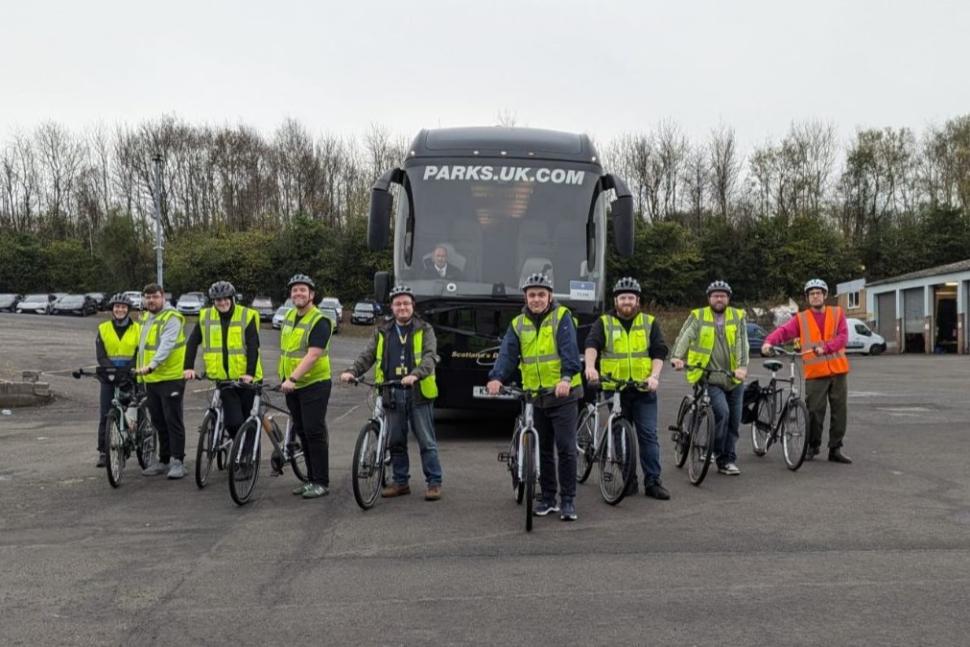 Coach drivers undertake cycling session (Cycling Scotland)
Coach drivers undertake cycling session (Cycling Scotland)12 December 2024, 15:13
"Nobody should be allowed near a driving licence until they've undertaken a comprehensive cycling course"
Cycling Scotland shared this on Facebook, drivers from Parks coach company in Hamilton recently out on their bikes as part of a Road User Awareness Training session. The idea being to gain "first-hand awareness of at-risk road users and guidance on how to drive more safely around people cycling".
It's got plenty of praise, many of the comments calling it a great initiative that should be more widely implemented. In fact, one person, a driver of 54 years and bike rider of 66 years, raised the idea that "no one should be allowed near driving lessons or licence until and unless they've undertaken a comprehensive cycling proficiency course/test", clarifying that they mean a 'proper' cycling course, not just the "school age basic type of 'proficiency'".
It's certainly not a new idea, and we're probably preaching to the converted here, but should cycling be part of the process of learning to drive? It would certainly, you'd imagine, give road users a greater appreciation for issues and dangers cyclists face?
Another comment suggested "the greatest benefit to road safety in the UK would be requiring *ALL* motorists to spend time cycling on public roads."
The York Cycle Campaign agreed with the positive impact such training can have, helping road users more aware of how others experience the roads. Likewise, they agreed with a comment saying it would also help for road users to experience sitting in a truck cab.
What do we reckon? Greater education and experience around cycling as a standard part of learning to drive? Seems a pretty obvious one when you write it out as a question like that...
12 December 2024, 16:38
More of your thoughts about Shimano's inspection programme
Thought we'd share some comments from the year-on deep dive into Shimano's inspection programme. For those who haven't seen it...
EM69: "Always thought it poor of Shimano to put the onus on the bike shops to make the decision on replacement here in the UK. My Ultegra chainset was replaced at the end of 2023 just as the bike was going away for the winter so I was very lucky as that year alone I'd already completed over 2,500 miles on it. A Dura-Ace crankset on another machine passed the inspection but I was told to keep a close eye on it and listen for any abnormal creaks or ticking, so now the onus is on me."
open_roads: "As I suspect many consumers have done - all of the drivetrain and brake equipment I have purchased this year has been from other manufacturers."
snooks: "I've been [using] Shimano since the late 70s and still do. Very disappointing how they have handled this. It's enough to make me consider SRAM."
12 December 2024, 14:57
"Tech always gets faster – it's on riders to not do stupid things," says Tadej Pogačar, after rival team boss called for "slower bikes to save lives" and pro claimed "modern bikes break every time you crash"
12 December 2024, 14:40
Rebrand season continues... as Dutch outfit becomes Team Picnic PostNL and Lapierre bikes return to the WorldTour
Plenty of off-season admin going on at the team formerly known as Team dsm-firmenich PostNL, the Dutch men's and women's squads getting a rebrand for next season, when they'll be Team Picnic PostNL. Here's veteran classics star John Degenkolb modelling the new kit, the former Milan-San Remo and Paris-Roubaix winner sticking around for another couple of years.
Degenkolb, Charlotte Kool, Pfeiffer Georgi, Romain Bardet, Fabio Jakobsen and Co. will be riding Lapierre bikes, the brand returning to the WorldTour for the first time since FDJ switched to Willier for 2024. It also all means that Scott won't be represented by Picnic PostNL next season, Q36.5 (and big-name signing Tom Pidcock) flying their flag once again in 2025.
Picnic PostNL's deal with Lapierre is for four years, according to the bike brand's parent company Accell Group. The riders will use the brand's new Xelius DRS for road races and the Aerostorm DRS for time trials.
> Lapierre reckons its latest bike is "a new pinnacle of endurance cycling performance"
Iwan Spekenbrink, CEO Team Picnic PostNL said: "We are delighted to partner with Accell and Lapierre and are impressed by their recent development to become future proof in what has been a challenging cycling manufacturing industry for the last years.
"We share a mindset regarding our commitments to technology, innovation and performance. Our R&D experts are looking forward to working closely with their engineering and technical specialists to integrate input and feedback in the development of the next generation of our road bikes, which we will already see out on the road mid-next year."
12 December 2024, 12:09
An epic test of physical and mental resilience... could you ride the Festive 500 in one go?
The Festive 500 is an essential part of the Christmas week for many. Chapeau to all of you doing it this year, an even bigger well done to the ten brave souls taking it on in one ride at Herne Hill Velodrome, in south London, on the 29th and 30th of December.
Lloyd Collier will be one of them, the ten available places on the annual event are always over-subscribed but a lucky group has been selected to take on the mega challenge and raise money for some fantastic causes in the process.
500km outdoors during the British winter sounds hard enough, then add in the sleep deprivation and psychological fatigue of riding the same 450m lap over and over and over again... more than 1,000 times. It's a proper challenge.
Lloyd is riding in memory of Annette 'Netty' Collier who sadly took her own life last year. He's raising funds for the Essex & Herts Air Ambulance who attempted to save Netty that day.
"Each time the helicopter flies it costs almost £3,000, with EHAAT's monthly total cost coming to approximately £1,000,000," Lloyd tells us. "They rely solely on charitable donations so I'm hoping to raise enough funds for their next three or four missions — wouldn't it be wonderful if, with funds raised in memory of Netty, they can get to the next Netty, or Hetty, or Harry, in time.
"The family and I ask that her death also be a rallying call to all of us to be vigilant to our loved ones and their state of mind — a fleeting moment of weakness can last forever."
The fundraiser has already hit the £6,000 mark. You can read more about Netty's story, Essex & Herts Air Ambulance's work, and donate to the fundraiser here.
12 December 2024, 12:03
UCI to ban use of carbon monoxide in pro cycling due to "health side effects" – but says controversial rebreathing method can still be used "in a medical setting" to test riders' altitude training progress
12 December 2024, 10:50
"The correct use of language is essential to ensure we bring people's attention to the actual negligence present in so many of these collisions": Police to replace 'accident' for 'collision' on road signs
Regular road.cc contributor Laura has penned a piece for Fleet News communicating the update that police will be able to replace 'Police Accident' with 'Police Collision' on road signs and in-car messaging.
Campaigners and the National Police Chiefs' Council (NPCC) welcomed the move, the language used to better reflect the fact that many collisions are avoidable and the result of human behaviour, not simply chance accidents.
The Department for Transport (DfT) has granted police special authorisation to use collision instead.
Commander Kyle Gordon from the NPCC called the news "another positive step" as "correct use of language is essential to ensure we bring people's attention to the actual negligence present in so many of these collisions".
"I know this change will be welcomed by our colleagues in policing who see first-hand the serious and long-lasting impact of collisions on individuals, families and communities. Five people killed and over 80 seriously injured on our roads every day is quite simply unacceptable," he said.
"The vast majority of these collisions are simply avoidable if people start to take seriously their own personal responsibility for safe use of the roads. The correct use of language is essential to ensure we bring people's attention to the actual negligence present in so many of these collisions in order to try and prevent this level of harm on our roads."
12 December 2024, 10:16
Shimano Hollowtech crank failures, one year on — how the component giant's handling of this dangerous debacle is continuing to damage its reputation
12 December 2024, 09:33
Bizarre story pro cyclist lost "100 thousand" betting on teammate Marcel Kittel at Tour de France... because he was eating a lot of pasta the night before a sprint
Ilnur Zakarin, now-retired but winner of two Giro d'Italia stages and one at the Tour de France during the mid-2010s, has taken to Facebook with a bizarre tale about how he lost "100 thousand" betting on teammate Marcel Kittel to win a Tour stage... because the German powerhouse was eating a lot of pasta the night before.
The source for this story is... Zakarin himself... the Russian rider telling fans via his verified Facebook account of the tale. Thanks to Google Translate, we can grab a hopefully accurate enough translation... although we'd give him some leeway with some of the wording.
I just saw that @marcelkittel liked the previous post, I immediately remembered the story with it. I was very fortunate that he and I got to go on the Tour de France on the same team. After the 17th stage, we met for dinner and I noticed he's already eating his third plate of pasta. I be like, “wat up bro?” He replies that he feels that I will win the stage tomorrow, and this feeling never fails him. I laughed, but I postponed the feeling information, because I feel the same. For a second, he won five stages of Tour de France a year earlier.
After dinner, I quickly got to my room and wrote to my homie to bet 100 thousand for Kittel to win. Koresh, who understands cycling, said it was a bad initiative. But emotions turned out to be stronger and I still bet on him.
Of course, I sent the money immediately and waited for the next day. The bet should work, and I will make a lot of money.I woke up in the morning energetic and charged up and expecting a big meal. I wished Marcel good luck, and I covered him from the wind, fed and protected him all day. I fell behind to the finish line, and when I got there, I immediately asked how he finished? He calmly replied that something went wrong today. After that, I no longer bet on sports.
The only year Kittel and Zakarin rode the Tour as teammates was for Katusha in 2018, a year when the sprinter was over the time limit on stage 11, so possibly a bit of misremembering going on here (although Zakarin saying Kittel had won five stages the year previous does check out).
The "100 thousand" is presumably Russian Ruble too, which would have been about £1,250 in July 2018.
12 December 2024, 08:58
Can they both lose? Lance Armstrong snaps back at Jake Paul 'call out' and promises controversial influencer an "ass whoopin'"
It's probably not top of the list of things we didn't expect to read this morning, but it's up there. Yep, this is the 'news' that disgraced retired pro cyclist Lance Armstrong appears to have nibbled a little too hard at what we're assuming was a light-hearted social media post from controversial (and easily hateable) influencer-turned-boxer Jake Paul. Yes, you all have permission to skip straight to the next live blog item...
For those who can bear to read on, Jake Paul is... the former Disney Channel actor who now fights opponents of a questionable ability in the boxing ring, most recently beating 58-year-old Mike Tyson. Let's not spend too long here, but for further reading Paul has a quite lengthy 'Controversies and legal issues' section on Wikipedia.
Anyway, we've mentioned him before on road.cc because his girlfriend, Jutta Leerdam, has been part of Team Visma-Lease a Bike's speed skating set-up so, when she trains on the bike, she has occasionally taken Paul with her. Cue much-ridiculed photos emerging on Instagram...
"Can get in the ring with Tyson, but can't clip in?" the top comment on one Facebook re-sharing of that. To be perfectly honest, we're happy to see anyone cycling, especially a major celebrity with an enormous following.
Paul went a little further and shared a video of him pedalling away on Instagram, taking the opportunity to tag a certain Lance Armstrong... "Lance Armstrong, I am coming," he yelled. "@lancearmstrong 1 v1 me," he wrote on the post. Now, as attention-seeking a figure as Paul is, that reads more like a joke, does it not? Obviously Paul would lose to Armstrong in any cycling event (a boxing bout is up for debate...), but the retired cyclist couldn't help himself but aggressively snap back...
"Child, please. You've been looking for an a** whoopin'. You found your place."
To which Paul responded, "Somebody tell him how many old guys I beat". Looks like our fantasy hill climb is off the table and we're moving towards something more combative. As sad/depressing/grim/*insert other horrified adjectives here* as it is, an Armstrong vs Paul boxing match would probably be the most publicity cycling (or more accurately, a disgraced former cyclist) has ever had.
Right, on with the readable stuff...
Dan is the road.cc news editor and joined in 2020 having previously written about nearly every other sport under the sun for the Express, and the weird and wonderful world of non-league football for The Non-League Paper. Dan has been at road.cc for four years and mainly writes news and tech articles as well as the occasional feature. He has hopefully kept you entertained on the live blog too.
Never fast enough to take things on the bike too seriously, when he's not working you'll find him exploring the south of England by two wheels at a leisurely weekend pace, or enjoying his favourite Scottish roads when visiting family. Sometimes he'll even load up the bags and ride up the whole way, he's a bit strange like that.
Latest Comments
- GMBasix 3 sec ago
You are the answer to your own question.
- GMBasix 3 min 10 sec ago
?The spirit of what May says is spot on. The detail a little off the mark, though....
- Kapelmuur 6 min 43 sec ago
How do drivers find the church parking spaces when it's "completely isolated" and the congregation"get lost"?
- quiff 11 min 36 sec ago
I thought this when I saw the new Brevet Element range:
- Rendel Harris 21 min 1 sec ago
For many people, especially those suffering from arthritis in their hands or similar, ease of mounting is an extremely important consideration,...
- VanDerBike 21 min 2 sec ago
Reminds me of this print from Blacklodge Press
- Legin 47 min 44 sec ago
I've tended to get mardy in the past about people not reporting incidents. However having been an Essex resident for many a year, I have to ask...
- eburtthebike 1 hour 23 min ago
You think that they studied transport economics and policy for a day? Generous.
- David9694 3 hours 23 min ago
1953 https://www.dailyecho.co.uk/news/25076814.blacksmith-arms---one-southamp...
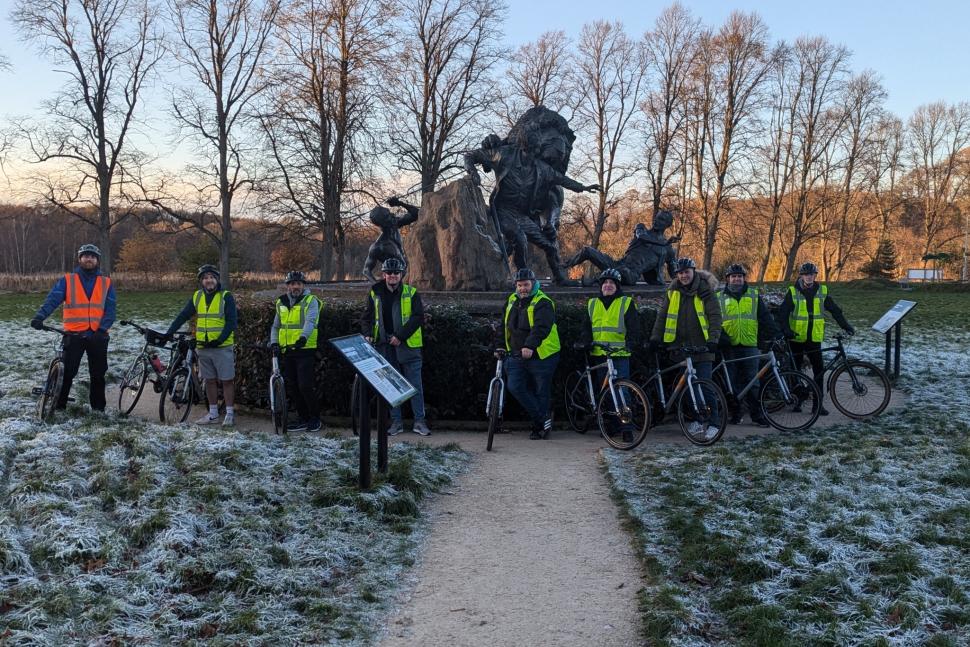
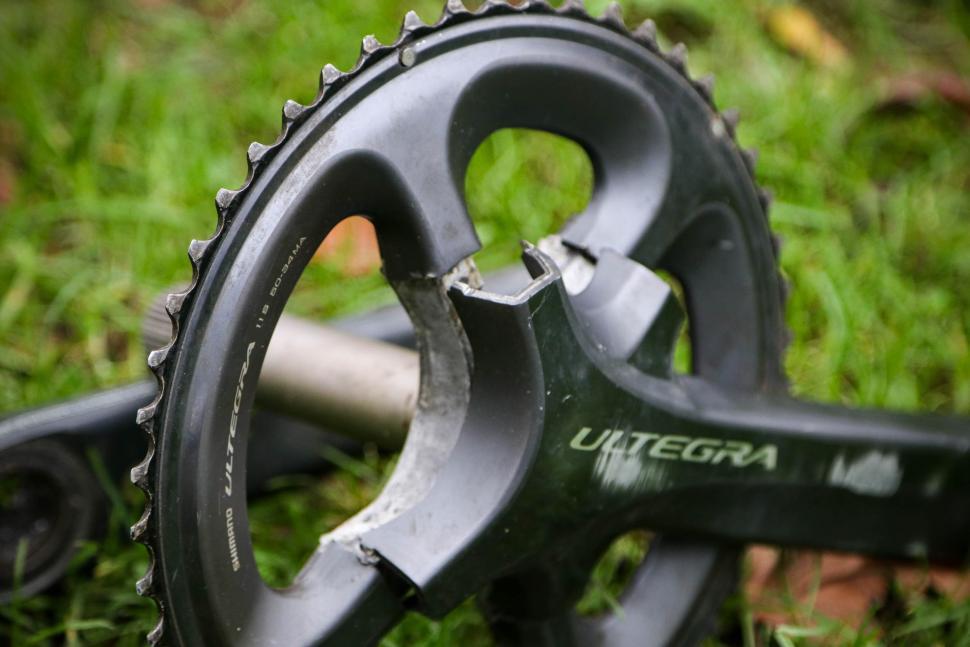
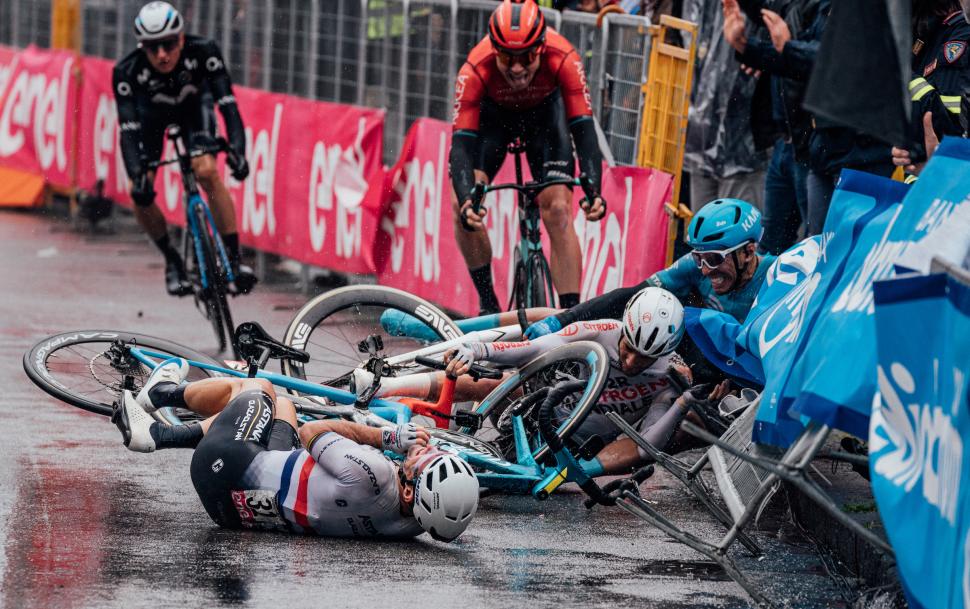
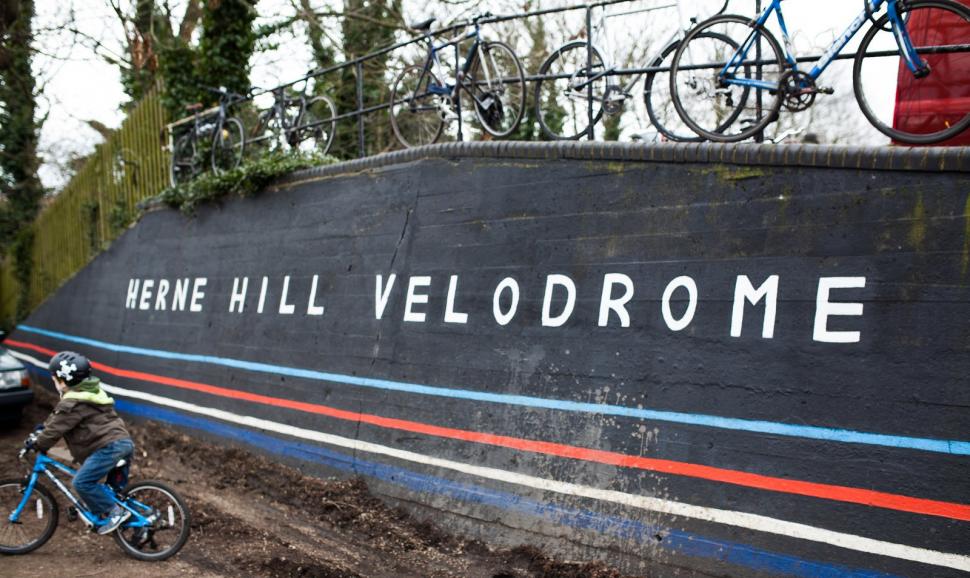
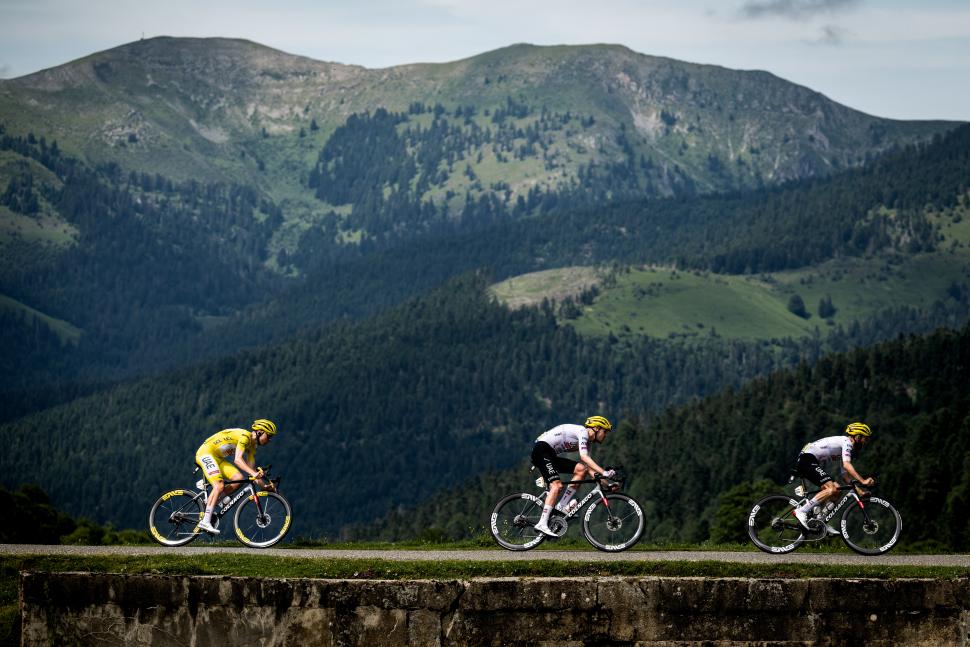
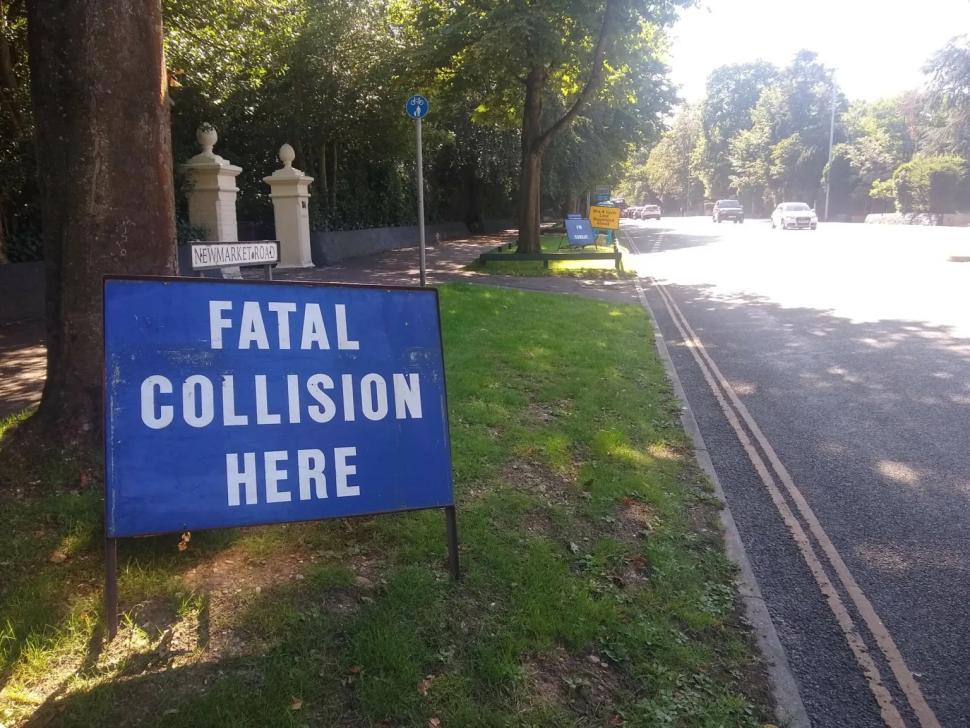
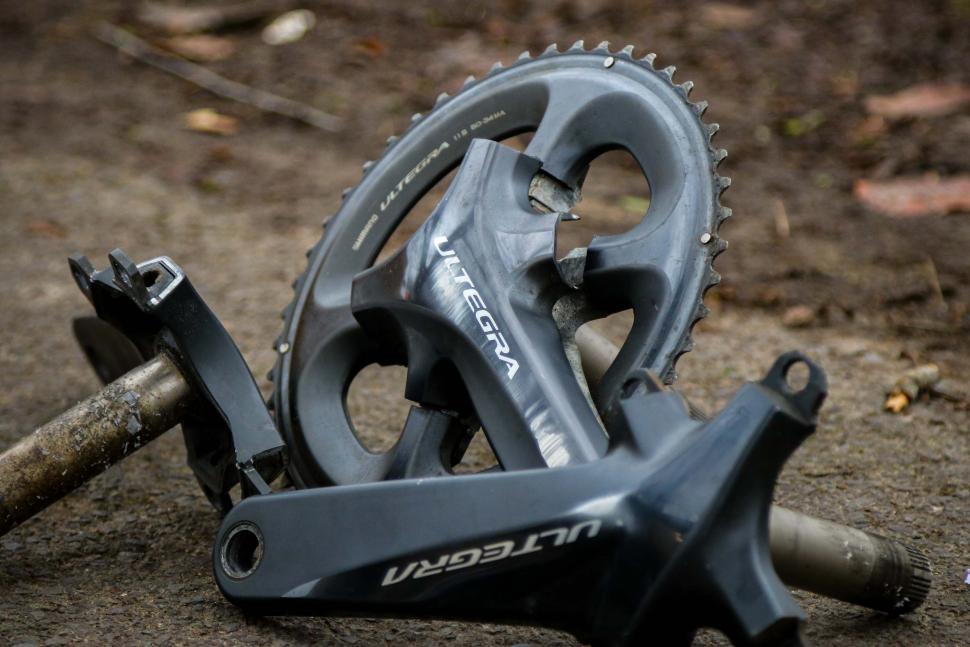
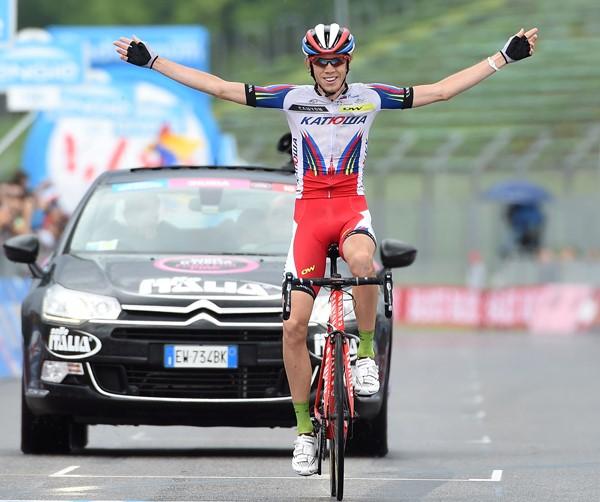

Add new comment
53 comments
Regarding motorists having to complete an in-depth cycling course before getting a licence. I actually think this is a great idea. And I think it should apply to motorcyclists too. In fact, motorists should also have a full motorcycling licence for the same reason. And this applies to all HGV and PSV drivers too.
Now let's turn this on its head. Cyclists need to have an appreciation of the limitations of motorised vehicles and so they must also have a motorcycle licence, a car licence, an HGV licence and a PSV licence before being allowed to cycle.
So, it's all great in principle but really?
I think this ALL makes sense - only we should also start as we mean to continue!
(Note - this was build in the 1950s! Children go a few times a year from primary age and it's also used for kids with visual impairments etc.)
Of course in the UK, just like the driving test itself, if we only do this "try other modes" once it's not going to do much. Remember - not speeding is in the test. And indeed most drivers walk and drive throughout their lives but that doesn't stop some drivers driving thoughtlessly and / or dangerously around pedestrians...
That little car is great - just what's needed for most single occupant journeys (maybe not so much in the rain).
I suspect it wouldn't even have to pay "road tax" either.
Also might encourage a safer approach to driving, what with the absence of roll bars.
There are adult versions available (with rain-proofing if desired: https://en.velomobiel.nl/quatrevelo/
I agree, however, it works both ways and cyclists should learn the highway code - especially in todays traffic
Communism!
(Anything that rescinds a privilege - in this case driving tonnes of metal at high speeds around other peoples' neighbourhoods without being forced to think of the likely consequences - is oppression. And if that oppression in any way affects sales - in this case of cars, petrol and all the things one can drive a car to go buy - then that oppression qualifies as communism.)
The parking (for free on public roads) and the people are one.
The passing (close *) and the people are one.
While your characterisation is accurate for some, I think it's more "common sense?!" Is it just that when people feel stressed / worried they are much less likely to embrace change?
There is a set of things people are keenly concerned about right now (getting a parking space near destination, not being unexpectedly delayed while trying to get about, not having to spend extra time or money travelling). The vision of the future presented by advocates for change probably looks impossible (if cycling "worked" and people wanted to cycle, surely they would already?) Or at least they can't see how it would be a benefit for them. Because right now in the UK many people's transport problems seem to be driving problems because that's how people travel!
Why would people want to accept the effort of change when that doesn't positively affect their direct concerns - or even (initially) negatively affects them. How will this make things better? Even if it does eventually, it looks like things would get worse first. How long for and why would it then improve?
It's not even limited to concerns from drivers - you can read exactly the same patterns of concern and opposition from some (often US-based) vehicular cycling advocates **!
* Mostly not deliberately, just "giving cyclists as much space as you would a car" e.g. not hitting them.
** e.g. objecting to the idea of cycle infra because in their experience it's usually rubbish - fragmented, "slow" and inconvenient - and might be used as an excuse to ban riding on the road (which likely seems a very real possibility in the US).
When teaching kids bikeability lessions, one of theings I used to say to them was that what they were learning was also foundational skills for learning to drives.
Being aware of what is going on around you, learning who has priority at junctions, looking to see who is around before signalling etc.
I've long said drivers should have to do the bikeabilty training before getting their driving licence both because of the above, but also to make them aware of more vulnerable road users - particularly to under why they may be riding in centre of the lane and not allowing a dangerous overtake.
Obviously there will be a few folk who through disability won't be able to do this, even with adapted bikes, so maybe tiem on tandems could help. Of note around 80% of blue badge holders can ride some sort of bike/trike, but only 21% can drive.
Yes and nobody should be allowed on a bike untill they've passed a real comprehensive test , fitted lights ,reflectors , bought insurance and had number plates fitted , and proved they have enough brain power to ride a bike safely
Don't be daft.
Don't be tempted to feed the Nigel.
You know, I feel the same way about mobility scooters... And they're involved in a lot more collisions with pedestrians than are bicycles
Chris Boardman famously pointed out that cows or lightning strikes killed more people than collisions between pedestrians and cyclists. Over here in France, there's a more surprising statistic that dogs kill and injure more pedestrians than collisions between pedestrians and cyclists. For the record, one pedestrian was killed in a collision with a cyclist in 2022, zero in 2023. So let's introduce compulsory training and testing for dog owners, liability insurance and visible identification numbers for their pets and make the owners prove they have access to a private dog-walking space before they are are allowed to keep a dog
Drivers like you tsk tsk
How about having enough brain power to qualify for social media posting?
I'm glad to see the police moving to change the language used when reporting on collisions.
Hopefully this feeds down to mainstream media (outside of cycling sites like road.cc, of course) so that all journalists use the correct language too.
For me, it's the traffic updates on the radio. Crash or incident is far more informative and neutral.
Making cycling on public roads a pre-requisite for learner drivers is 100% a good idea for 2 reasons:
1) Improved awareness of how vulnerable cyclists are and, hopefully, the learner being a safer driver for it
2) Learners realising that for most relatively short journeys, cycling is a better option than driving which benefits everyone including other drivers.
Yes. It would also help drivers understand why cyclists can't ride at the very edge of the road (drain covers, debris etc), why they might move outwards (to avoid potholes etc), not to be surprised when they move outwards in advance of passing parked cars and that a close pass distance at 30 mph is very different from one at 10 mph.
Yeah ... but remember: e.g. not speeding is (presumably still) taught to learners, then having passed the test a very high percentage leave that behaviour behind.
I believe only incremental benefits are available by doing this. Real change requires a change in how society views things, and that needs people to have a) skin in the game and b) constant reinforcement. That is: they and/or their loved ones regularly cycle, the boss cycles, the police cycle - even the planners and the politicians cycle. So it's both seen as unremarkable AND drivers get constant reminders by seeing cyclists cycling everywhere.
I think there may even be an additional obstacle - human impatience and the psychological "cheater detection" triggers. These are obvious in the UK where cyclists are "in the way" and "slowing me down", and also "undertaking" (filtering) and this triggers aggro and complaints about "road tax". The latter less to do with any logic or the actual money but more a feeling of "not fair".
Those obstacles apply wherever drivers could (per regulations) go much faster than cyclists. (The Dutch example shows that drivers can accept sharing space where there are speed limits much closer to cycling speeds. And of course where they accept those because they understand why e.g. residential areas where there might be children playing, people walking in / crossing the road etc.)
Where drivers could go much faster it may be that we have to have completely separate space - not just for enhancing cyclists' perceived (and actual) safety but to work around the psychology of those driving!
3) gaining experience using the roads at minimal risk to third parties. It's an excellent opportunity to practice hazard perception in a real world environment.
Hot Fuzz has been pushing this since 2007
It's for the Greater Good
The Greater Good.
It would also be very weird for Zakarin to have been blowing himself up trying to get Kittel a win on stage 18 as that year he (Zakarin) was in contention for a top-10 finish, ultimately taking ninth place. On stage eight that year Kittel was 15th with Zakarin well down in 39th so maybe he made a typo meaning stage seven, rather than seventeen?
"Lives lost due to lack of rural cycle paths, MP says"
https://www.bbc.co.uk/news/articles/c1elnwn09vno
Pretty much the only people cycling around our way are the recreational riders, usually in groups. Almost no recognition of cycling as transport, and vast amounts of road space given over to parked cars.
Lib Dem Freddie van Mierlo - a promising new prospect!
I doubt much of this will reach the countryside in my lifetime. The "obvious" places with "quick wins" e.g. urban areas running short of space / clogged by motor traffic are still struggling to get stuff built even on a "take a decade" timescale.
It definitely could be useful - given that in many places there are towns and villages which are an eminently walkable / cycleable distance apart but the current options are a NSL road or at best a tiny, crumbling and overgrown "footway".
The way to do it has been shown by the Dutch as usual - "tame the car" within built up areas (lower speed limits, discourage through-traffic) and build good cycle paths in the countryside (e.g. see here). Which are of course also perfectly fine and legal for pedestrians to use, and in practice "conflict" isn't an issue because a) they build to sensible width * and b) this treatment is used where there aren't likely to be many cyclists and even fewer pedestrians.
If the Dutch are anything to go by - and with the addition of eBikes - there is also a small but real demand for actual "cycling superhighways" (long distance routes which avoid cyclists having to stop). Most people will still take public transport or drive these distances, BUT more provision for cycling in the countryside would at least allow people to reach public transport hubs.
* Not like the UK's "here's a 1 to 2m wide footway - stick a cycle sign on it, hey presto it's a bi-directional cycle path AND a footway!"
Most of the NSL roads around here don't have any pedestrian or cycling provision.
Whilst I realise I am in a very small minoritiy in that I cycle 25 miles each way to work (when I can drag my idle overweight @r$e out of bed in time), but if the A16 from Spalding to Peterborough had a cycle path it would probably knock 10 minutes off my ride, and I am sure others would use it for shorter portions of the route too.
I know it is never going to happen, the road won't be upgraded in my lifetime, and if it is will be to turn it into dual carriageway and get rid of roundabouts.
Lincolnshire AND South Holland - good luck!
I've never cycled on the A16 and pretty sure I never would! I was actually thinking about South Holland in that comment (I've some passing knowledge of the area), for example bits of the A15 have a footway, but then it does the UK thing of suddenly crossing the busy road, then kind of petering out. And there's nothing at all in places.
But yes - I think Lincs generally will be the last place if the revolution comes. LOTS of traffic and a terrible combination of indifferent maintenance (presumably because rural hence lots of road), agricultural / heavy freight lorries, some loooong straight roads encouraging drivers to "get up to speed" while you're struggling in the wind, but also narrow / winding stuff with poor sight lines. Oh, and deep water-filled ditches next to the roads for you to meet your end in when the draft from a large lorry wafts you off.
As is often the case this also means it can be lovely, because rural, some roads extremely quiet, the west (east of A15) is actually rolling and not flat etc.
Pages